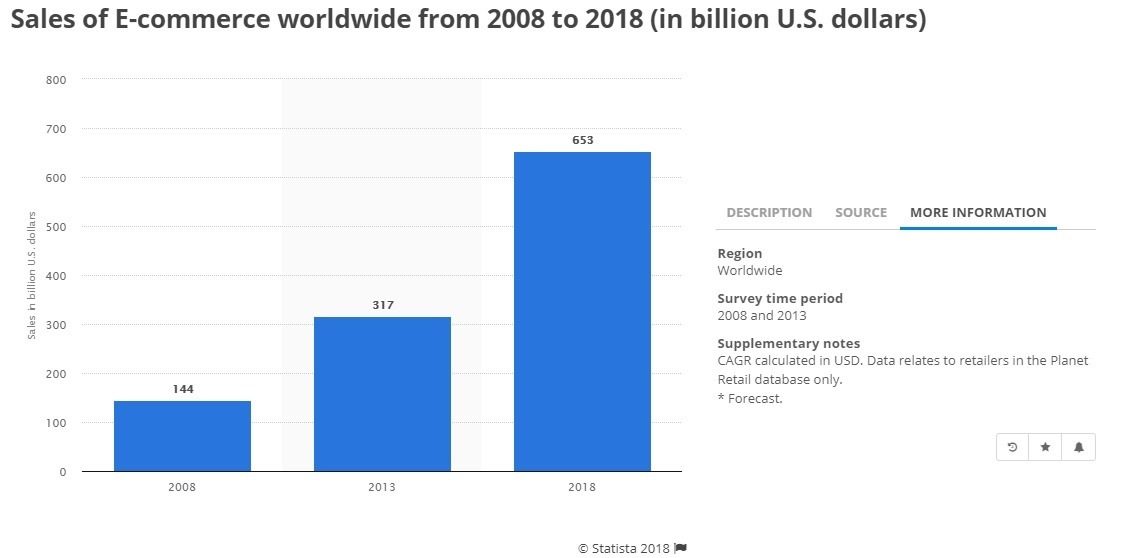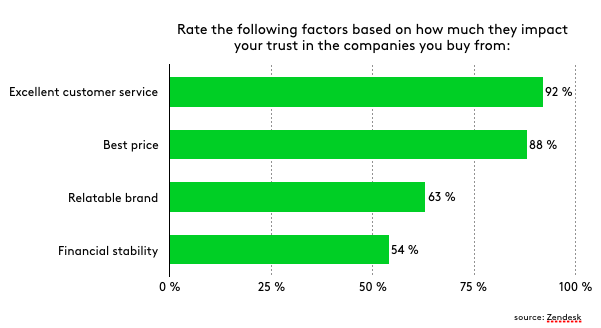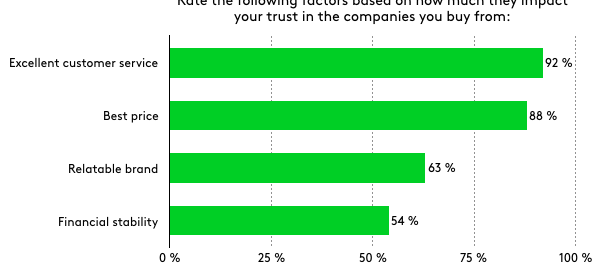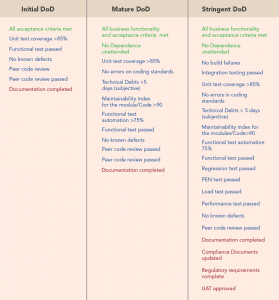— January 1, 2019
There’s no time to rest; it’s time to get your store ready for 2019! This year has shaped up to be another bumper year for eCommerce, with Amazon reporting that their biggest day in sales history was Cyber Monday 2018. And with the overall sales total in the US reaching $ 7.9 billion, it seems everyone got a piece of the action.

As 2018 draws to a close and we start to reflect on all our successes, our work for the coming year is just beginning. The first thing you need to do is set clear eCommerce business goals for 2019 so that you can plan accordingly. To do that, you need to start by looking at your 2018 stats to prepare for growth in the coming year – in essence, creating a new business plan for your eCommerce store. This should include a breakdown of:
- Your converting target market demographics, to point to gaps and key performers
- The best- and worst-performing traffic streams and their conversion stats
- Your financials (sales, expenses and profits for your store and product categories)
- Your 2018 milestones and outcomes
- Your customer service record and fulfillment history
After reviewing these, you can then plan your goals for 2019.
This should include your financial goals, product and milestone objectives, and, most importantly, budgets. Here are some questions you should be asking yourself before you plan for the coming year:
- What ‘problems’ do I want to solve in 2019?
- How much am I willing to invest in scaling my business this year?
- What are my biggest competitors up to?
- What winning categories can I expand and grow?
- What skills should I be outsourcing?
Beginner Tip: If you are an eCommerce newbie, visit our post with tips on how to start a successful 7-figure store with insights from some top brands.
Now is the time to crank up the heat and take your online store to the next (7-figure) level. And what are the key things you should be looking at to achieve this? We’ve got the answers!
Here are the 6 must-dos to get your store ready for 2019 to take it from successful to eCommerce superstar.
1. Do a Full Site Audience Against the Market and Your Biggest Competitors
The first thing you need to do is a complete store site audit. This includes reviewing and updating all your site info, optimizing your site, making sure your site is user-friendly and ensuring you have on-site marketing tactics in place such as reviews, UGC and coupons. This is something that even the most successful stores need to do on a regular basis. If you want a DIY option, start with our Step-by-Step Guide for Online Store Feedback post.
2. Adjust and Expand Your Product List
Once you know which products are winning and which ones are losing, it’s time to make some decisions. Just because you’re breaking even on some products doesn’t mean it’s time to stop pushing them. It is common practice amongst leading eCommerce brands to throw a lot of budget behind popular products to convert customers the first time so that they can remarket them with email and PPC campaigns at a much higher ROI. What you want to do is review and mine your customer feedback, take a sneak peek at what your competitors are doing and brainstorm niche-segment gaps in the market that you could fill with a product. Here’s a short step-by-step guide to get you started:
Step 1: Study your customer data
Step 2: Do a shopper survey
Step 3: Research new market segments
Step 4: Look at different distribution channels
Step 5: Find trending products that your shoppers would love
A good place to find inspiration is our list of 2019 best-selling products including trending products for:
- Apparel and accessories
- Beauty, hygiene and personal grooming
- Car accessories
- Food, health and wellness
- Homeware and home decor
- Jewelry
- Toys and baby goods
- Best-selling kitchen products
- Tech, gadgets and accessories
3. Upgrade Your Fulfillment Strategies to Optimize Shipping
Don’t let an awesome jump in sales mean a compromise on service. As we discussed in many posts over the past year, thanks to the likes of Amazon shoppers have come to expect faster and faster shipping. That’s not to say shoppers aren’t willing to pay for premium shipping. What is important here is that they get their packages when they were promised, and streamlining your fulfillment – especially if you’re shipping globally.
If you found yourself running around like a headless chicken this holiday season, trying to fulfill all those orders, it may be time to upgrade your fulfillment and shipping strategies. This can include hiring new staff, offering speedier shipping upsells or changing shipping services. Alternatively, it may be time to invest in a fulfillment service that can handle all three. Here’s a comprehensive list of services to get you started: Extensive List of Fulfillment Companies and Services.
4. Get Serious About Customer Service Personalization
Your fulfillment goes hand-in-hand with customer service, and the growing trend for eCommerce is customer service personalization. This is something Glam Guru knows all about, going above and beyond with having beauty experts at the ready and waiting on WhatsApp, live chat, email and dedicated calls. This strategy may not work for your market, but the trick is to find a way you can update and personalize your customer service moving forward to make sure you’re not being left behind this year.
Why? Because personalized customer service builds trust and brand loyalty, both of which are huge contributors to growing conversion rates.

So what constitutes personalized customer service?
- Making sure you’re communicating with customers – with both your copy and your chats – human-to-human.
- Staying on top of your customer data and feedback to adapt in real-time.
- Honor your customers’ trust by keeping your promises and being fully available through Messenger, on-site live chat, email and/or phone.
5. Build the Ultimate Multi-Channel Marketing Strategy to Drive Traffic
If you’ve been throwing more money at one platform than another, it is time to rethink your strategy. Once you have your customer service, fulfillment and product strategies in place, it’s time to think marketing strategy. The key to a scalable, winning 7-figure marketing strategy lies in a multi-channel, multi-objective approach that captures potential shoppers and customers at every level of the buying funnel.
This includes strategies that integrate your marketing platforms, so that your awareness, retargeting, email and customer promotions are feeding you leads and sales seamlessly. Your marketing and traffic driving strategy should include:
- Google Shopping
- Google Dynamic Search
- Facebook Dynamic Products
- Google remarketing
- Email campaign strategies
- SEO and PPC companion marketing
6. Invest in the Right Apps to Scale Your Business on Autopilot
We all want to run a lean, profitable online business but you can’t do it all perfectly. Apps will help fill in the gaps and help you implement your 2019 strategies. So, if you have been skimping on app spending, make this year your year.
Here are some of the top apps leading eCommerce businesses are using to streamline their business, increase revenue and scale their business to the next level:
- To expertly manage and optimize Google Ads for the best ROAS, try Traffic Booster.
- If you want to streamline and run your email sequence and promotion set-up, use Klaviyo or MailChimp.
- To run remarketing on autopilot, use Recart.
- Create shoppable Instagram posts and embed Instagram titles to make them clickable with Foursixty.
- Grow social and email databases with Coupon Pop.
- Streamline your customer service and experience with BOLD Shopify apps.
—
There you have it, 6 must-do things to get your store ready for 2019. Stay tuned for a host of new guides this year to help you scale your business and upgrade your strategies.
Have questions? Post them in the comments below.
Business & Finance Articles on Business 2 Community
(81)
Report Post




